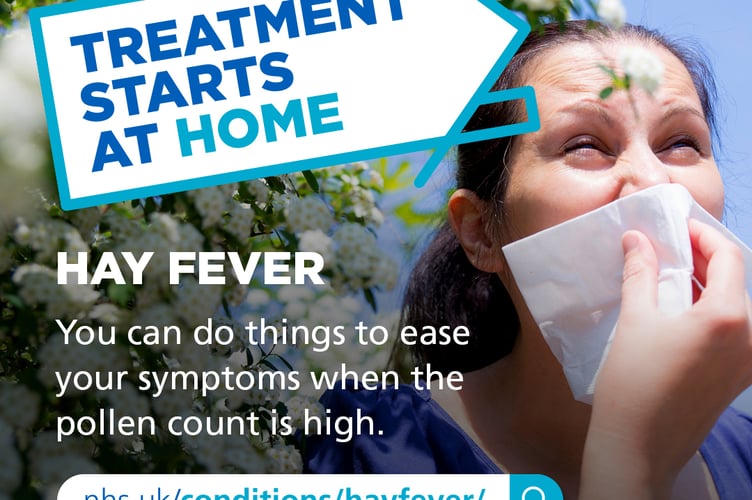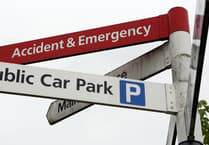AS hot weather increases pollen impact Devon NHS has issued hay fever advice.
Hay fever is usually worse between late March and September, especially when it's warm, humid and windy. This is when the pollen count is at its highest.
People in Devon are being advised to treat the symptoms of hay fever at home. General advice is available on the NHS website but if further assistance is required on how to manage hay fever, this is available through local pharmacies.
In line with national guidance, NHS Devon has asked GPs to encourage self-care for hay fever which will allow them to focus on more complex patient issues. GP practices may refer people with minor conditions such as hay fever, to local pharmacies for a consultation with a pharmacist.
Dr Susan Taheri, GP in Mid Devon and founder of the Growing Well Garden, a green social prescribing project, said: 'As a hay fever sufferer myself, I know how unpleasant the symptoms can be.
'I have some really simple tips for self-care and relieving the common symptoms, so we can keep going out and enjoying the outdoors.'
Dr Taheri’s top tips are:
- Pre-emptively take antihistamines – don’t wait for symptoms to kick in.
- Over the counter steroid nasal sprays are particularly good at helping with nasal symptoms caused by pollen. They tend to take two to three weeks to start working. If you’ve got symptoms now, start them. It might be a few weeks until you feel the benefit, but it’s worth keeping going.
- Be mindful of the weather. Look at the pollen forecast and avoid peak times of day. Pollen counts tend to rise as the day goes on and peak around the middle of the day.
- Wear a hat and wraparound sunglasses – this can minimise the pollen that comes in contact with your face.
- If you have been outside, try to change out of your clothes when you come in so you don’t carry pollen through the house
- If your eyes or face are feeling itchy, wash your face with plenty of cold water and make sure to wash your hands.

Pharmacies can help with hay fever
Pharmacists and pharmacy teams are trained to give advice on health conditions, such as hay fever. They can also recommend suitable products that can be purchased over the counter to help relieve the symptoms of hay fever.
If your condition is more serious, pharmacists are trained to signpost you quickly to get the right medical care.
To find your closest pharmacy see https://www.nhs.uk/service-search/pharmacy/find-a-pharmacy


